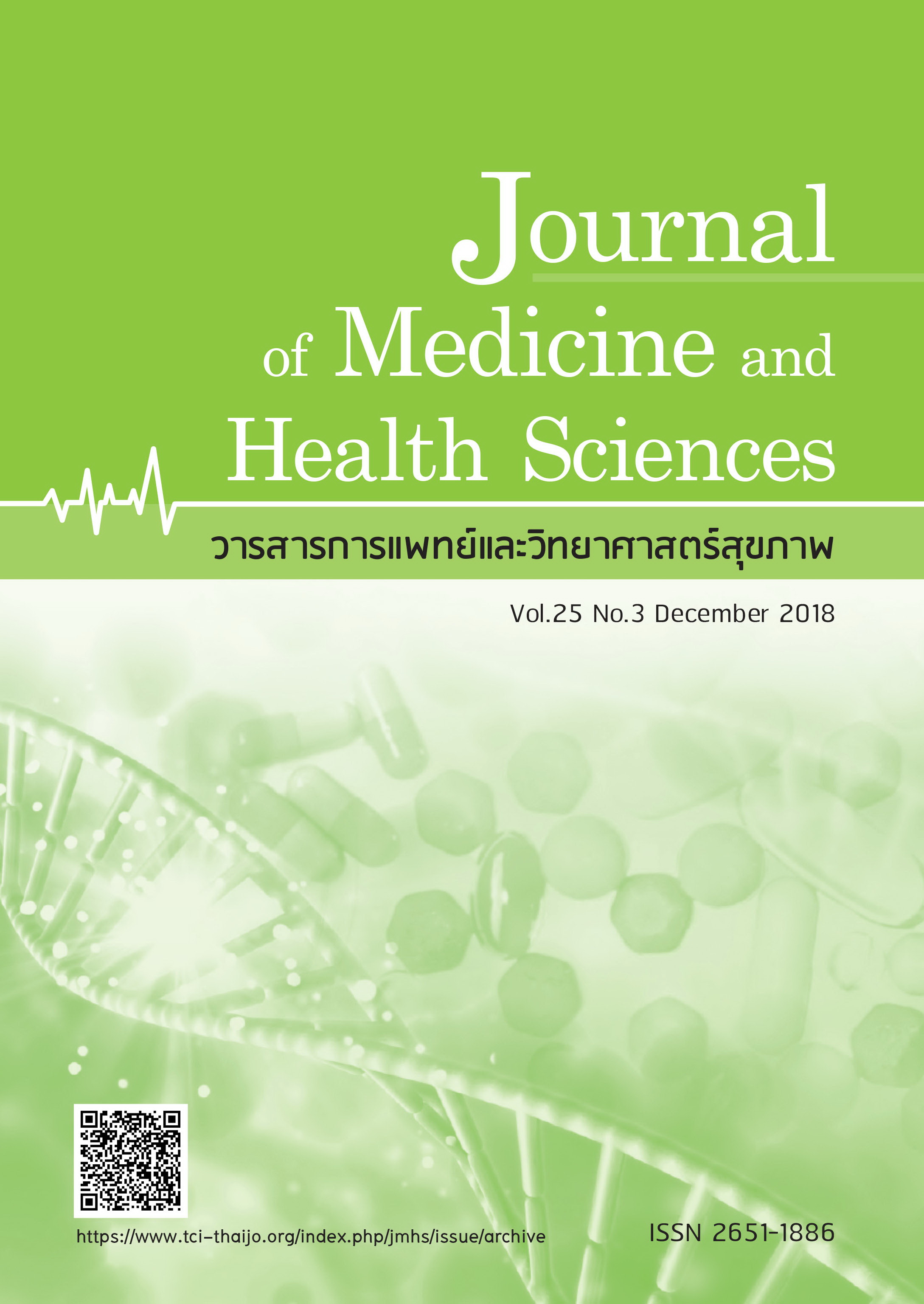ทัศนคติต่อการเขียนแสดงเจตนารมณ์ของตนเองในวาระสุดท้ายของชีวิต
Keywords:
advance directives, end-of-life, palliative care, living willAbstract
Palliative care, which is widely applied in many hospitals around the world, can help
improve the quality of life for patients and their families, facing the problems associated with
a life-threatening illness. The palliative patients can design their end-of-life care and prepare
for their ultimate death by writing an advance directive and communications to their family
and medical staff. From the researcher’s experience, most of patients hardly write their
advance directives. Thus, this qualitative research studied about attitudes toward advance
directives, the barriers for writing, and responding patients’ desires by in-depth 30 sample
interview and data analysis. The factors that affect an individual’s end-of-life plan are family
issues, the social and religious beliefs combined with their experience of end-of-life patient
care, whether positive or negative, also influenced the views on their own advance directive
plan. Typically, an advance directive plan includes property management instructions, the
treatment plan and resuscitation wishes, the preferred place and atmosphere during the last
moments of life, future planning for family members, funeral and after death management.
Each interviewee gave different information depending on their concern about their life. Even
through some interviewees planned their last day through realizing the advantages of writing
an advance directive and recognizing the disadvantage that might happen if they did not tell
family members about their wishes for their final days, almost all of them had not previously
documented any thoughts on the issues. Their reasons for their prior inactivity on the subject,
including difficulty communication within the family, it was bad image for Thai society, not
appropriated time for writing, or not know how to start writing. Upon, accepting the notion
that it is wise to write an advance plan, the interviewees felt that the optimal time for writing
the document was between 60 and 70 years of age or when they first become seriously
ill. The information from this research can be applied to the field of palliative care in each
workplace for physicians and medical staff to understand patients’ attitudes toward their
desired treatment at the end-of-life and help them to write advance directives comfortably to
ensure they receive an appropriate treatment as their wishes by resolve the barriers and help
their families to prepare for grief and loss.



